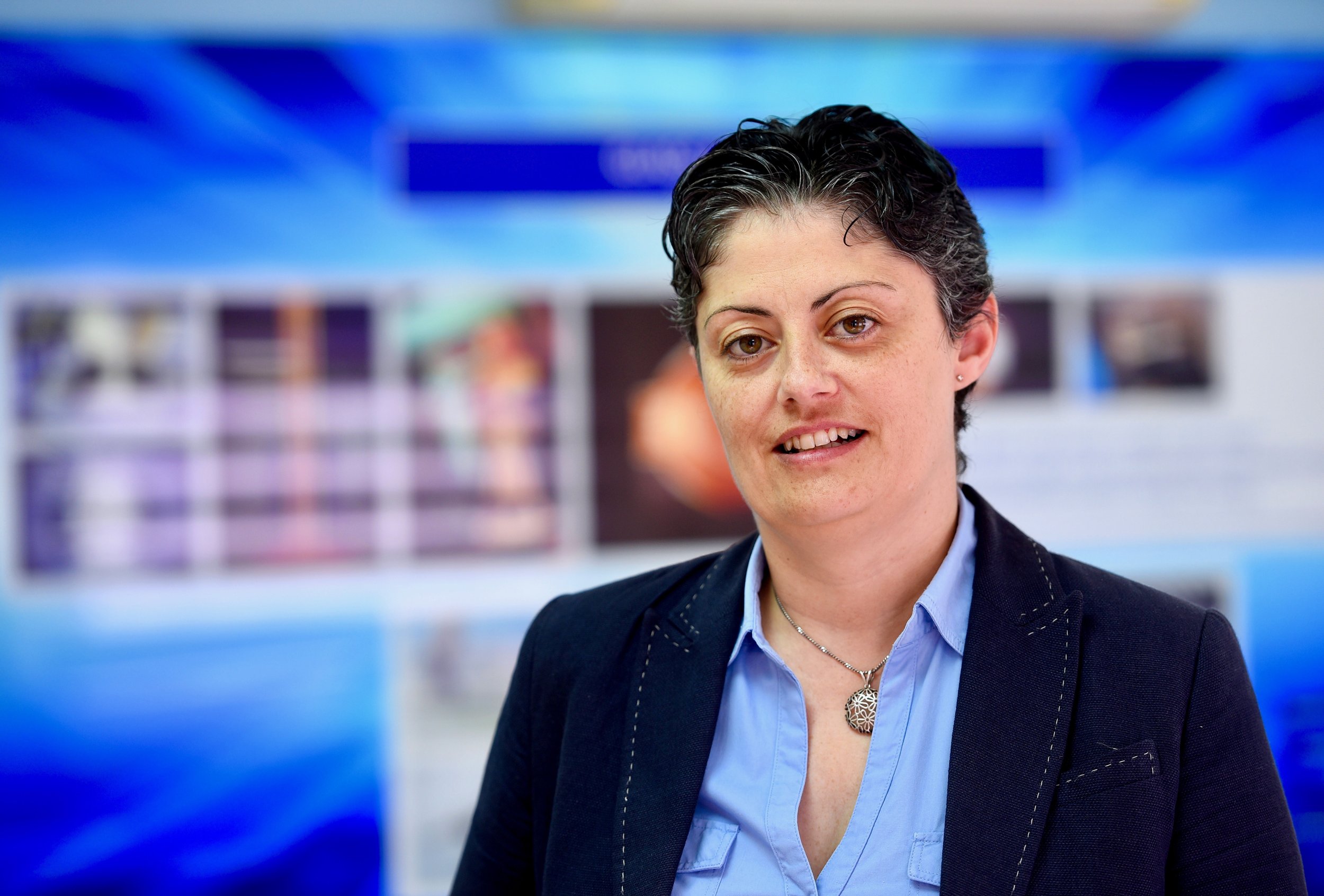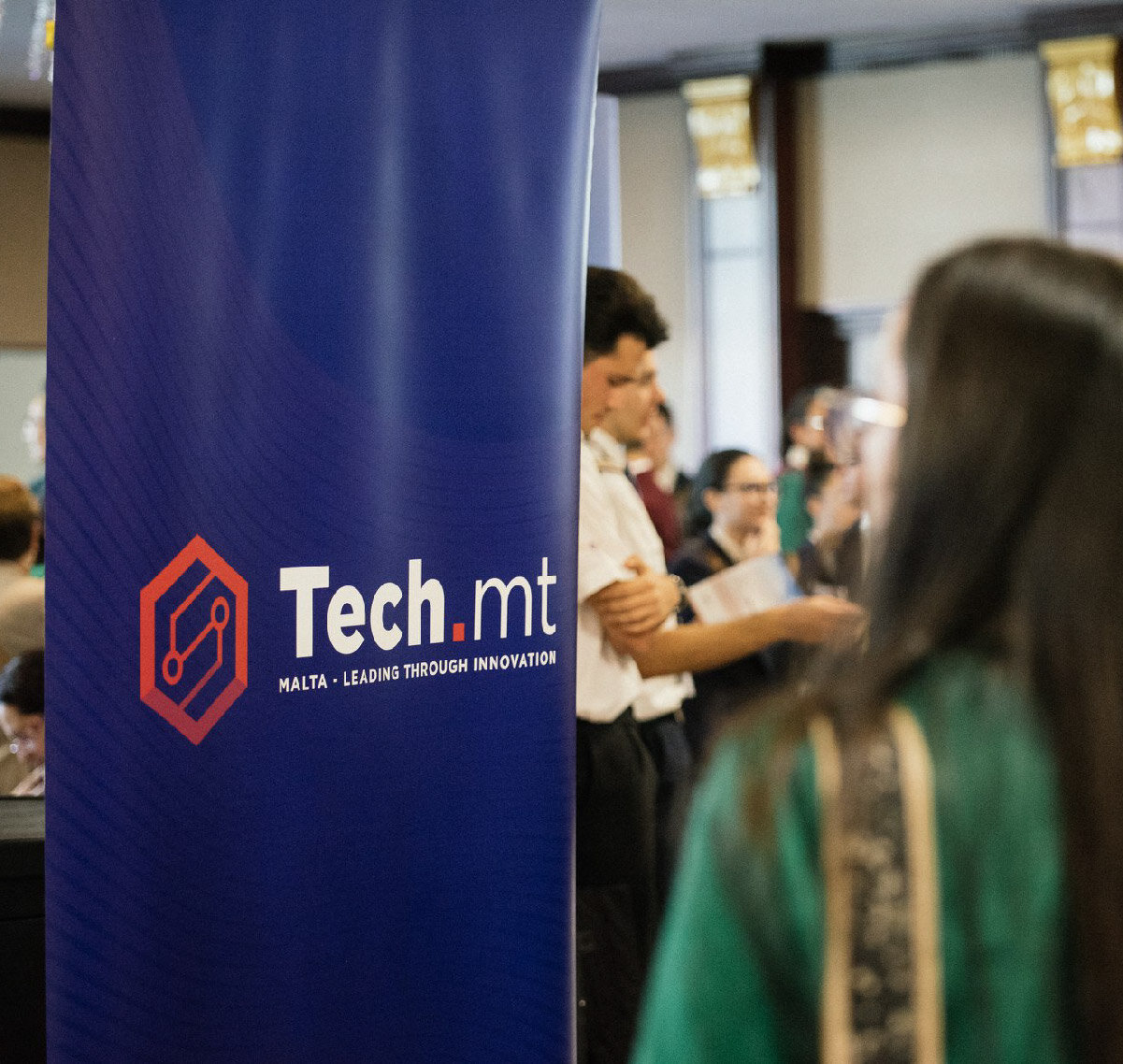BRIDGING THE DIGITAL DIVIDE
Digitalisation is being heralded as the must-have solution for the advancement and prosperity of local businesses. Giselle Borg Olivier speaks to Hon. Silvio Schembri, Minister for the Economy, about the digital strategy and the plans that Malta must develop itself as a digital centre of opportunity.
In 2020, you said, “Unless we embrace technological improvement, certain businesses will die a natural death” at the launch of a ‘business re-engineering scheme’ in collaboration with Malta Chamber and Malta Enterprise. What can we expect to see in terms of eCommerce and digitalisation opportunities for local businesses?
Malta has been striving for digitalisation, specifically with the launch of Digital Malta’s National Digital Strategy covering 2014-2020. The National Strategy Digital Malta has driven digital policies and sets Malta’s ambition as a ‘digitally enabled nation’. Since then, Malta has produced promising results, as indicated in statistics provided by the European Innovation Scoreboard and Digital Economy and Society Index (DESI) 2020 and 2021. In the coming weeks, Malta shall be launching its Digital Strategy for the years to come.
Whilst we acknowledge the remarkable transformation within the private sector, we also greatly encourage further digitalisation and innovation for our citizens, as well as within our foundations and enterprises. The public sector also needs to boost its services through technology; therefore, Malta is developing a new enhanced and overarching digital strategy for 2021-2027. The new sectorial strategies emphasise various technologies on digital public services, cybersecurity, eCommerce and data.
Furthermore, in terms of eCommerce opportunities for local businesses, Malta’s Government, through the work of the Malta Communications Authority (MCA), is currently working on its strategic outlook for the coming years by carefully considering the latest trends and developments in the digital services market. This is being done to ensure that any gaps emanating from these trends are addressed whilst also safeguarding businesses by providing them with the support they need to improve their technological posture.
Building on the outcomes of the 2014 eCommerce Malta National Strategy and in line with the government’s upcoming Digital Strategy, over the coming years, the MCA’s eCommerce work plan will comprise measures that seek to increase awareness about eCommerce opportunities and encourage good eCommerce practices. As well as increasing business and technology competencies through awareness and education opportunities including the eBiznify programme.
We are also educating sellers about standards and regulatory compliance and increasing demand by encouraging consumers to avail themselves of Maltese eCommerce propositions whilst promoting safe eCommerce use. The government is also promoting a healthy, competitive solutions’ market where sellers have a wide choice of solutions and make sound, informed adoption and investment decisions. The facilitation of stakeholder discussions and participation in future policy formulation is also underway, together with the monitoring and analysis of eCommerce activities to evaluate policy effectiveness, inform discussion and shape future policy.
Concerning industry, Tech.mt has been instrumental in encouraging industries to go through digitisation and launch their businesses online. It has been available to all businesses in need of advice, support and information about available grants that can be tapped into.
With the pandemic exposing the digital divide across different segments of society, Tech.mt has also pledged its commitment to continue to assist those left behind to receive opportunities that enable them to cope with the rapid digital transformation that COVID-19 has brought about.
The European Commission’s proposals for Digital Services and Digital Markets Acts (DSA - DMA) are significant landmarks in developing the EU’s digital strategy. So, where does Malta fit in this strategy? And how is the country faring?
The proposals rationale and goals for the Digital Services and Digital Markets Acts (DSA-DMA) have provided users with significant additional benefits and contributed to the internal market by opening new business prospects and facilitating cross-border trading. It has also contributed to innovation.
These digital services have become increasingly important when it comes to everyday online activities. These provide the opportunity to boost customer choice, improve industry efficiency and competitiveness, and strengthen civic engagement in society.
Malta has continued to push the boundaries in the digital sphere. This is reflected in Malta’s substantial performance increase (14.9%) in the 2021 Innovation Scoreboard. Malta’s success in this sector is mainly due to the government’s drive and commitment towards the digital sector and the private sector’s continued investment and growth.
Malta ranks 6th out of 27 EU Member States in the 2021 edition of the Digital Economy and Society Index (DESI). The country performs well on broadband connectivity – since 2019, all Maltese households have been reached by Very High-Capacity Networks offering speeds of up to 1Gbps. A continued focus is needed to increase the take-up of these networks and ensure the swift assignment of all 5G pioneer bands.
The Maltese Recovery and Resilience Plan, which emphasises digital aspects and a total of €316.4 million, has been allocated under the Recovery and Resilience Facility, envisages developing and implementing initiatives for digital skills under the umbrella of the country’s upcoming Digital Strategy 2021-2017. Accordingly, €80.8 million, or 25.5% of the total, is earmarked for digital transformation. In particular, a reform included in the plan aims to reduce the digital divide and promote digital skills through upskilling initiatives and increasing Malta’s pool of ICT professionals.
engSeifert Systems Ltd has launched The Smart Factory, forecast to begin operating towards the end of 2022, using the Internet of Things (IoT). How do you see these innovative launches affecting the local business sector?
Recent government and private sector direct investment have paved the way for innovation to flourish. The pandemic has undoubtedly accelerated the need to adopt technology and digitalisation in operations. Diversifying our economy to create room for new niches such as AI, IoT and Blockchain technology will help cement our position as a hub for innovation and technological advancement. My take is to embrace this new norm, invest, diversify and ultimately come out of this pandemic even more robust, perhaps also as a technological leader on the world stage.
“Throughout the discussions, it was widely acknowledged that SMEs need to accept the new norm and embrace such change to flourish and grow.
A Strategy and Vision for Artificial Intelligence in Malta 2030 aims to map the path for Malta to gain a strategic competitive advantage in the global economy as a leader in the AI field. The vision is for Malta to become the “Ultimate AI Launchpad”, the ideal location where local and foreign companies and entrepreneurs can develop, prototype, test and scale AI and ultimately showcase the value of their innovations across an entire nation primed for adoption.
Through industry and technology-specific research and studies, Tech.mt has also engaged in consulting over 140 businesses in the field of eCommerce and IoT. The insights gathered through such assessment studies have been used to formulate upcoming national strategies and analyse the state of emerging technology deployment amongst local businesses.
In 2021, Tech.mt explored the adoption of IoT among businesses and investigated areas such as sectoral relevance, willingness to invest, barriers or challenges, effectiveness on business operations, and insights into actual industrial applications. With the expected growth of IoT demand, this report aims to shed light on how IoT is paving the way for businesses to redefine the way they manufacture or design products, optimise processes, and enable enhanced sales while at the same time increasing awareness of its adoption amongst Maltese businesses.
The future of the digital economy will require a new skill set of the workforce. Therefore, it is critical that our educational institutions, including our primary and secondary schools, start equipping our future workforce.
Over the past months, there has been an increase in spoof websites and scam texts, with the head of MITA saying that one million spoof emails are received every month. So what cybersecurity measures is the country taking in light of these recent spoofing events?
Actions taken by MITA in the immediate term can be categorised under the following titles - awareness, international collaboration, policies and regulation, and legislation. Spoofing and related activity has been going on for several years and is an area where Cyber Security Malta, the national cyber security awareness and education campaign led by MITA, has periodically and intensively advocated. Following recent spoofing events, the national campaign further intensified its efforts to raise awareness on the topic through social media, traditional media and dedicated sessions with specific audiences. International collaboration has also escalated in this respect, including discussions on how the cyber security domain is covered from policy, regulation and legislative perspectives. Long term actions are also planned, in line with the National Cyber Security Strategy.
What was the highlight of this year’s ‘Malta SME Week 2021’ for the local economy?
The SME Week is an annual event organised each year by the Ministry for the Economy and Industry. It is also a pan European initiative that promotes competitiveness and entrepreneurship. The SME Week aims to inform entrepreneurs about support available at both the EU and national levels while promoting entrepreneurship and discussing business opportunities. It also serves as a good platform for networking.
During this years’ SME Week, various vital areas were discussed: the Malta Economic Vision, Entrepreneurship among Women and Youth, Compliance, Digitalisation, Green growth, and Internationalisation. However, a common theme was the potential of Digitalisation and Economic Vision as tools for forging ahead. In the past months, SMEs demonstrated that they were vastly resilient in adopting several changes and introducing new ways of operations. Digitalisation proved crucial during such challenging times and brought new ways of doing business through the digital world.
It provided an opportunity to open a virtual shop or provide a service without having a physical location. However, one must be trained on the management of digital websites and safeguard one’s business from cyber-attacks. Therefore, the demand for a new skilled workforce in the digital world has surged. Throughout the discussions, it was widely acknowledged that SMEs need to accept the new norm and embrace such change to flourish and grow.
What is Malta doing to attract FDI in the technology and digitalisation sector?
Competition for tech investment is enormous, and we are effectively competing with other countries across the globe, regardless of whether they are larger economies or developing countries.
Therefore, being aware of what each market is after, through active research and keeping abreast with current economic, political, social and technological developments both locally and internationally, is essential towards promoting Malta with potential investors. While geographically speaking, we may be small. We proudly transformed that ‘drawback’ into a golden opportunity in our favour. Our agile and fast-moving advantage proved essential for digital start-ups to test their products before launching in international markets.
Equally important is that we are aware that the local tech sector has its unique qualities, which set it apart from its competition, which will ultimately enable us to ensure growth for the technological sector in Malta. Furthermore, the Maltese Government has also acknowledged the importance of the proper strategic tools in the digital sector as the key to shaping its competitiveness on a global level. Therefore, Malta remains at the forefront of implementing digital policies to help attract tech business, namely the National Digital Strategy 2014-2020 and other strategies aimed at different industry verticals such as Blockchain and AI. Thanks to these efforts, the digital sector in Malta has grown exponentially over the past few years, with the sector currently contributing to almost 9% of Malta’s GDP; this augurs well for future growth.
Malta’s accessible economic environment and tax incentives demonstrate a flexible work setting that offers numerous benefits to foreign investors searching for an attractive and reliable business opportunity.
























Zak and Benji Borg, co-founders of ANCHOVY. plc and James Abela and Matthew Sammut, co-founders of NIU Ltd. have announced the formation of a comprehensive technology and digital services group, known as Capital 9H Ltd., with the goal of creating the largest digital services offering in Malta and paving the way for an international growth programme in the rapidly growing sector.